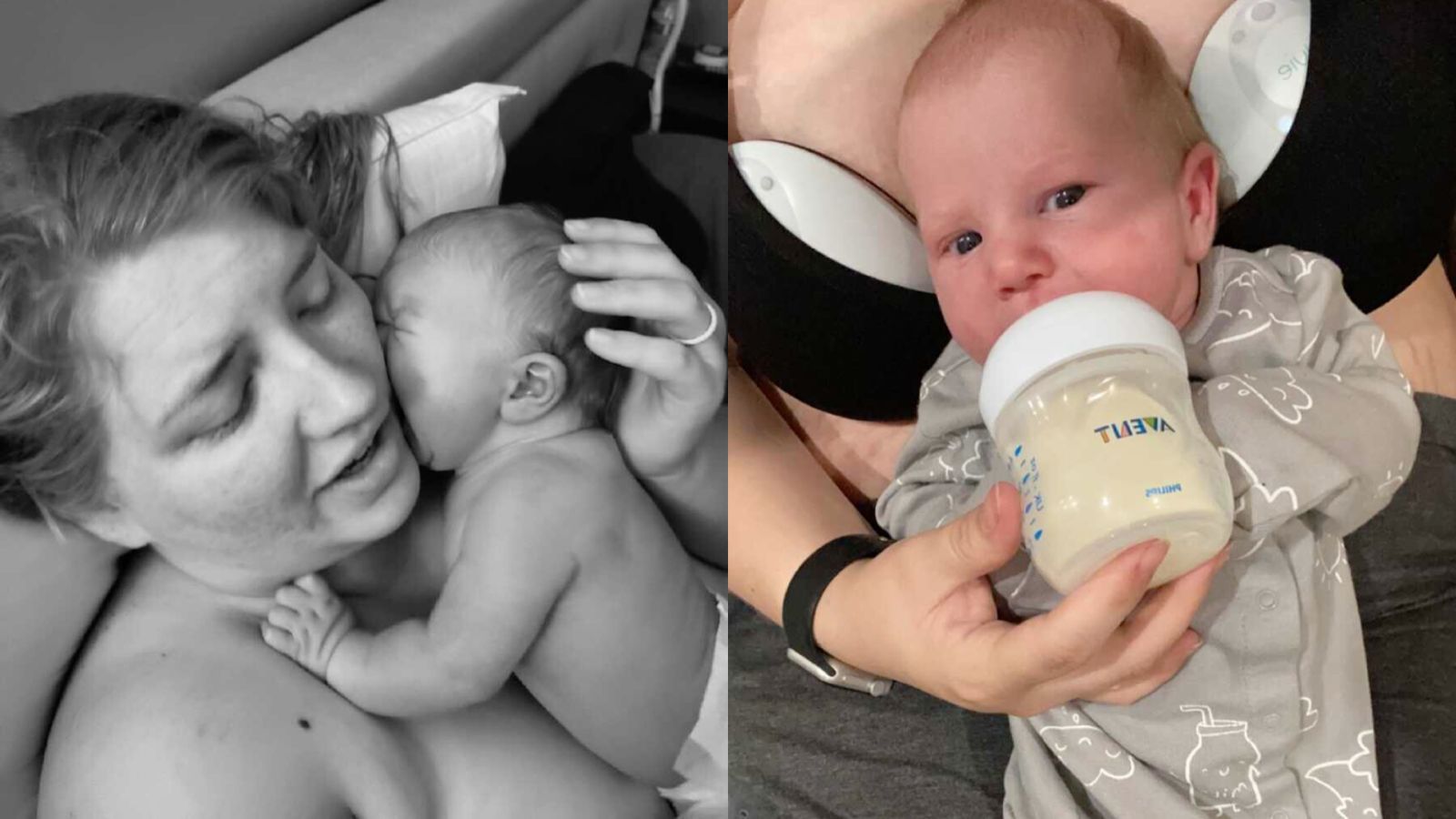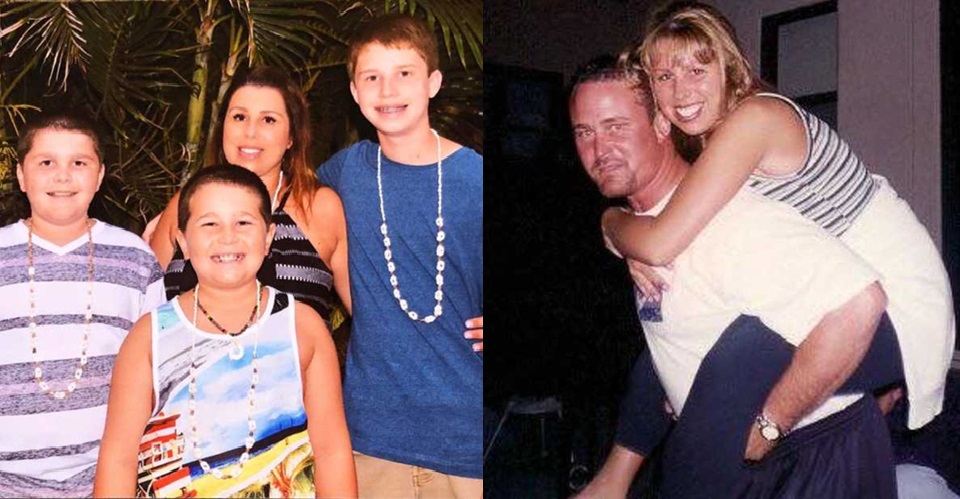Pumping. Just the word can make you feel excited, frustrated, or both at the same time.
Before I got pregnant, I always thought I would breastfeed. I’d heard the horror stories of moms who struggled, and honestly, that scared me. The expectation seems to be that you just magically know how to feed your baby right after giving birth. If you don’t, a lactation consultant will come in and tell you how to do it or sometimes demonstrate it in a way that makes you question human decency.
Luckily, not all consultants are harsh. The kindest person to help me was actually a nurse who happened to pass by during one of my breakdowns. I begged my husband to find someone who could help me, and she was there at just the right time.

My son arrived weighing nine pounds, fifteen ounces, a big baby! We immediately struggled with nursing. Two lactation consultants came in daily for four days while we were in the hospital. Every session left me feeling overwhelmed. I was told my baby was starving, warned about supplementing formula, and repeatedly questioned whether I was doing it “right.” I was trying my hardest, but with a C-section incision, exhaustion, and a newborn who didn’t want to cooperate, it felt impossible.
Every consultant offered different advice. One told me to hold my baby a certain way, the next one said it was wrong. My brain was fried from medications, sleepless nights, and being asked a million questions. There I was, desperately trying to learn breastfeeding while simultaneously recovering from major surgery. My modesty was gone after doctors, nurses, and specialists had all seen and handled parts of my body I never imagined they would. It was humiliating, exhausting, and heartbreaking.
At one point, a nurse told me I might need to supplement formula because my son had lost too much weight. I sobbed. I felt like a failure, like my body had betrayed me and I couldn’t even feed my child. At his first pediatric appointment, he was still losing weight. I was crushed.
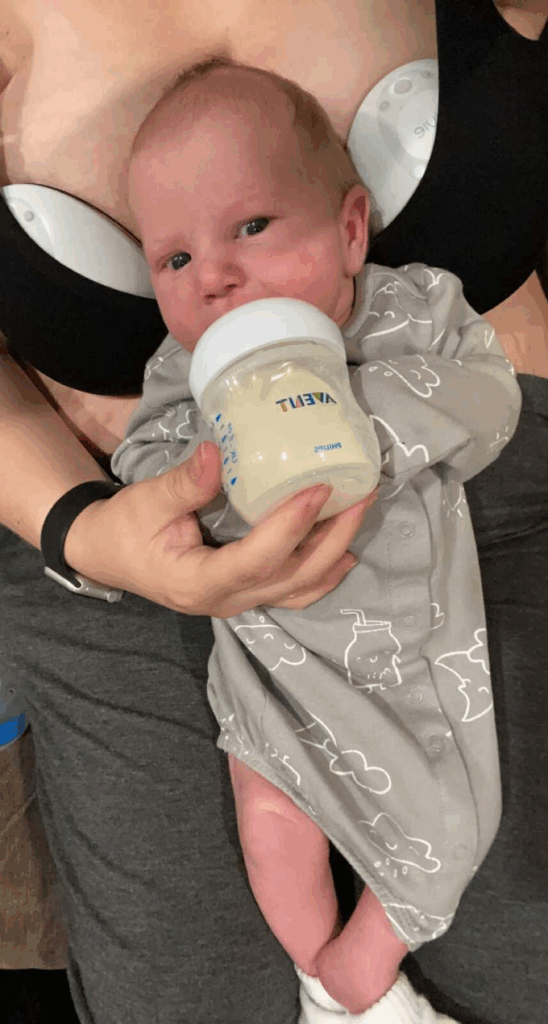
That’s when my husband stepped in. He held our son for nearly 45 minutes while I tried to nurse, bending and adjusting so I could feed him without added strain. He supported me physically and emotionally in ways I can never fully describe. That kind of love, that dedication, it’s incredible.
After two weeks of crying, stress, and frustration, I decided to switch to exclusively pumping. That night, I made a promise to myself: no matter how hard it was, I would make sure my baby got breast milk. And within days, my son gained a pound in just three days. Today, at four months, he’s over twenty pounds and thriving.
Exclusively pumping is hard. It’s time-consuming, exhausting, and sometimes awkward. You clean bottles constantly, carry your pumping gear everywhere, and worry about milk storage when you leave the house. There are all the issues you hear about, clogs, mastitis, sore nipples, and scheduling. But it’s worth it. Not just for my baby, but because I’ve been able to donate over 3,000 ounces of breast milk to help other babies.
I’ve learned that it’s okay to stop nursing or pumping if it’s too much. It’s okay to give your baby formula. What matters is that your baby is fed, loved, and cared for, and that you survive motherhood without losing yourself in the process.
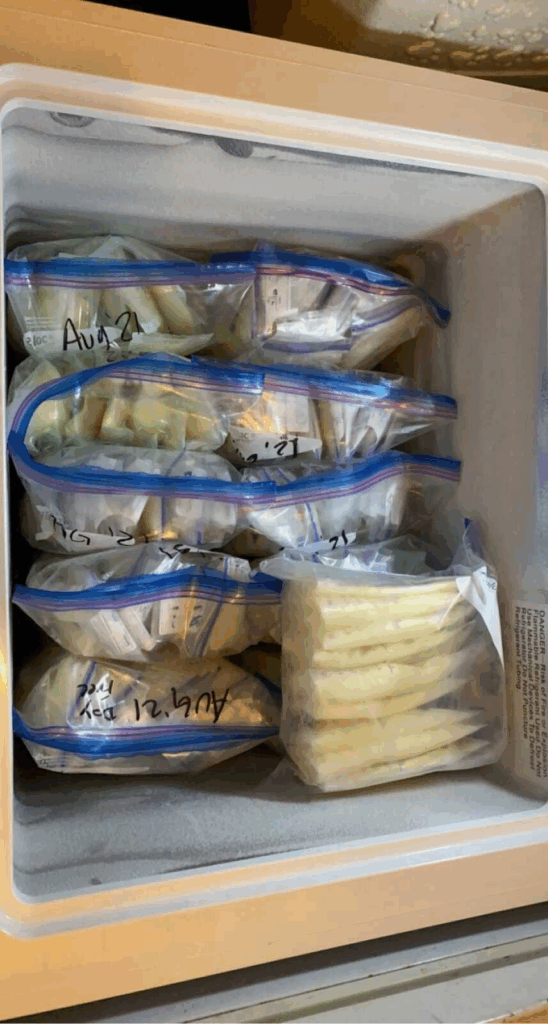
Breastfeeding isn’t just nursing from the breast. It can mean pumping, bottle-feeding, or a combination. The goal is nourishing your child. Your baby doesn’t care how the milk gets to them—they just know you love them.
Motherhood is hard. It’s messy. It’s exhausting. But it’s also full of moments that make the struggle worth it. You’re allowed to cry, to feel overwhelmed, and to ask for help. You don’t have to be perfect.
No matter how long you breastfeed, hours, days, weeks, or months, you deserve recognition. You learn as you go, and things rarely follow a perfect timeline. Your baby will grow, develop, and surprise you in ways you never imagined.
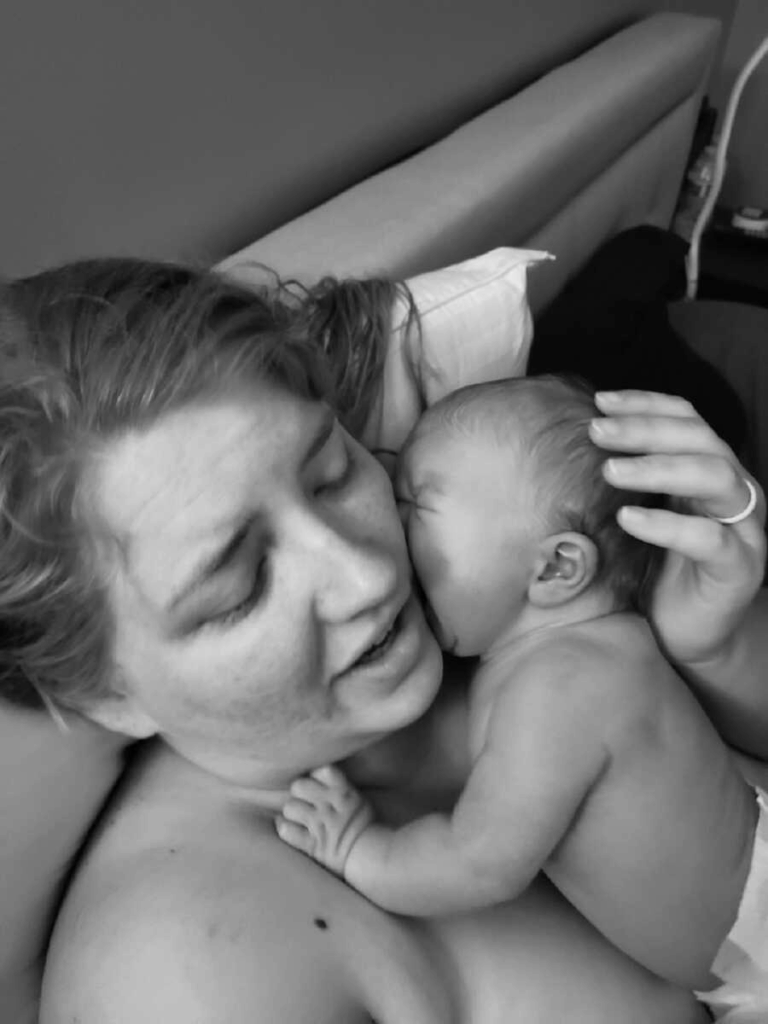
Through it all, the most important thing is love. Feed your baby the best way you can, cherish the time you have, and remember that the moments are fleeting. One day, they’ll walk away, and you’ll wonder where all the time went.
